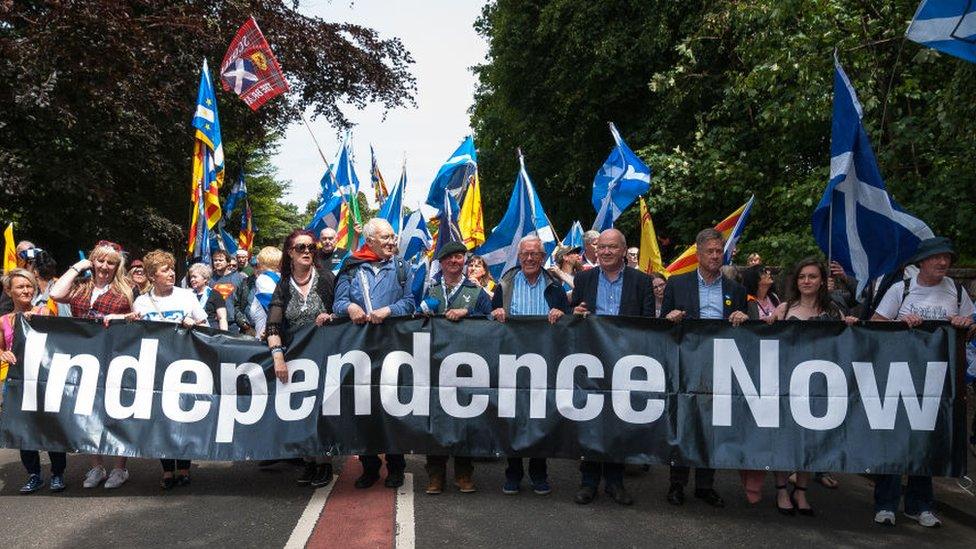Indyref2: SNP reveal 'roadmap' to another independence referendum
- Published
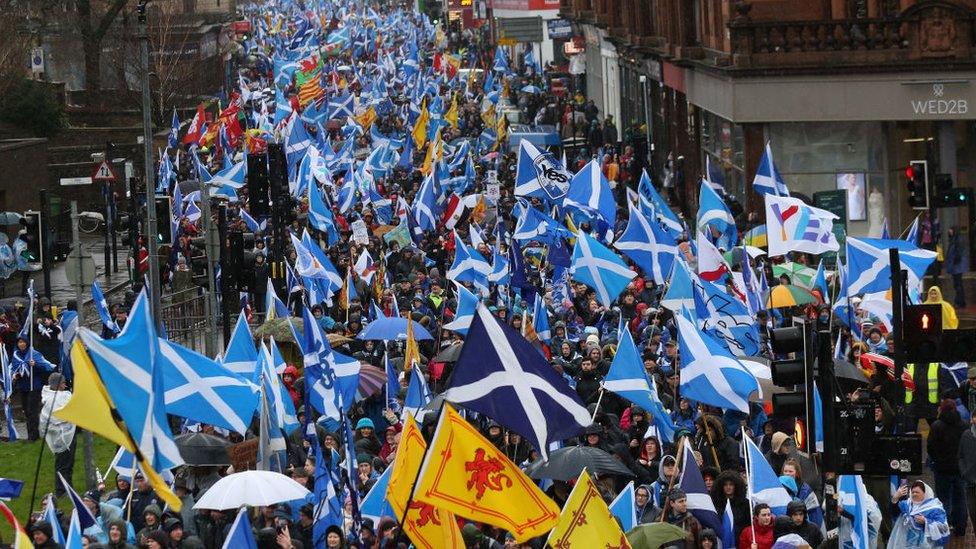
The SNP has revealed a "roadmap to a referendum" on Scottish independence, setting out how they intend to take forward their plans for another vote.
It says a "legal referendum" will be held after the pandemic if there is a pro-independence majority at Holyrood following May's election.
The 11-point plan, external says it will "vigorously oppose" any legal challenge from the UK government.
Boris Johnson has repeatedly stated his opposition to another referendum.
Opposition parties accuse the SNP of putting the push for independence ahead of the Covid pandemic.
The roadmap document was presented to about 1,000 members of the SNP's national assembly by the Scottish government's constitution secretary, Mike Russell.
It states that if the SNP take office, the Scottish government will request from the UK government a section 30 order - part of the Scotland Act 1998 which allows Holyrood to pass laws normally reserved to Westminster.
It says "there could be no moral or democratic justification for denying that request" and adds that if the UK government did adopt such a position it would be "unsustainable both at home and abroad".
The document goes on to say that if it has a parliamentary majority it will introduce and pass a bill allowing a referendum to take place after the pandemic.
It says that will leave the UK government with three options:
agree that the Scottish Parliament already has the power to legislate for a referendum
agree the section 30 order - as happened ahead of the 2014 vote
take legal action to dispute the legal basis of the referendum
"Such a legal challenge would be vigorously opposed by an SNP Scottish government," it adds.


Until now, the SNP's plan for indyref2 was to win this year's Holyrood election as convincingly as possible and watch UK opposition crumble.
Boris Johnson has made clear he has no plans to agree another referendum "for a generation" and that's driven calls from critics of Nicola Sturgeon's leadership within the SNP for her to set out a plan B.
She has always resisted - to avoid acknowledging the potential for continued UK refusal and to avoid revealing strategy.
After significant gains for leadership critics in internal elections to the SNP's ruling body, that has changed.
Plan B is to legislate for a referendum, even if the UK refuses consent and to be prepared to defend it in court. The referendum would only go ahead if it was considered legal and only after the pandemic.
What's not clear is what would happen if (and this is not a prediction) the courts said "yes", the UK government continued to say "no" and pro-UK parties boycotted the referendum.
To secure legitimacy any referendum really requires the consent of both sides.

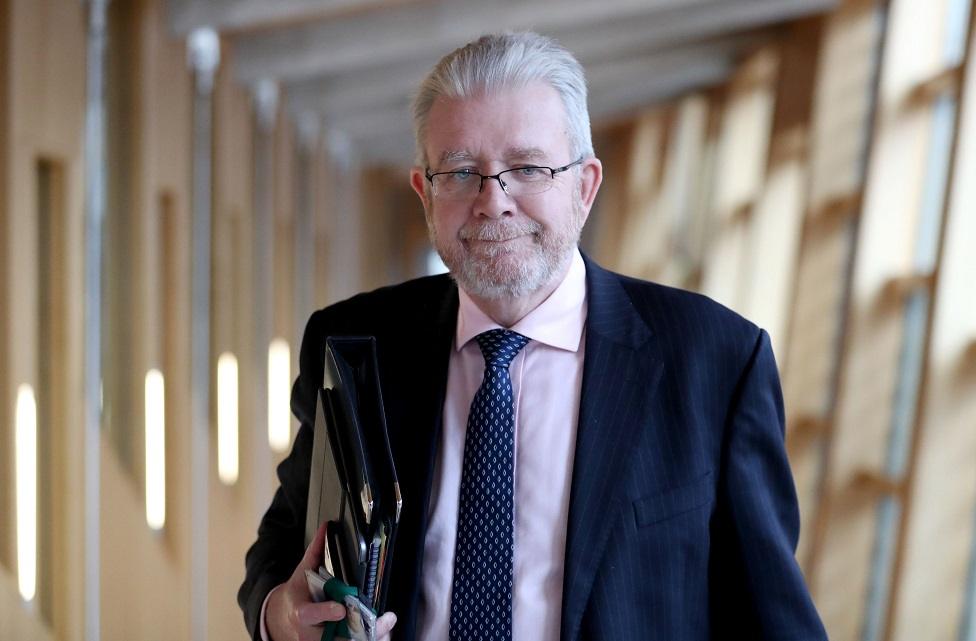
The document will be presented to the national assembly by Mike Russell
As the document was published, Mr Russell said: "The referendum should be held after the pandemic, at a time to be decided by the democratically elected Scottish Parliament. The SNP believes that should be in the early part of the new term.
"Today I am setting out how I believe that right can be secured, and I welcome the discussion that will take place around this idea and others.
"But what is absolutely not for discussion is the fact that if Scotland votes for a legal referendum on 6 May this year, that is what it will get."
What are the opposition parties saying?
Opposition leaders said the SNP should be focusing on the pandemic rather than another independence vote.
"It is inexcusable that at this time of acute crisis the SNP seeks to put its plan for independence above everything else," Jackie Baillie, the interim leader of Scottish Labour, said.
"The people of Scotland are being badly let down by an incompetent UK government and a Scottish government that seeks to exploit the current crisis for its own ends."
Scottish Conservative leader Douglas Ross described the roadmap as a "reckless move".
"Most Scots will wonder why time, energy and resources are going into pursuing an illegal referendum when we are facing far bigger challenges as a country right now than the constitution," he added.
And Willie Rennie, the leader of the Scottish Liberal Democrats, said the SNP had got their priorities "all wrong".
He added: "Thousands of people have lost their lives, even more are living with the long term effects of the virus, the hospitals are bursting at the seams, operations are cancelled, businesses are on their knees, schools are shut yet the SNP think now is the time to restart their campaign to break up the UK. It is crass, insensitive and the wrong priority for our country."
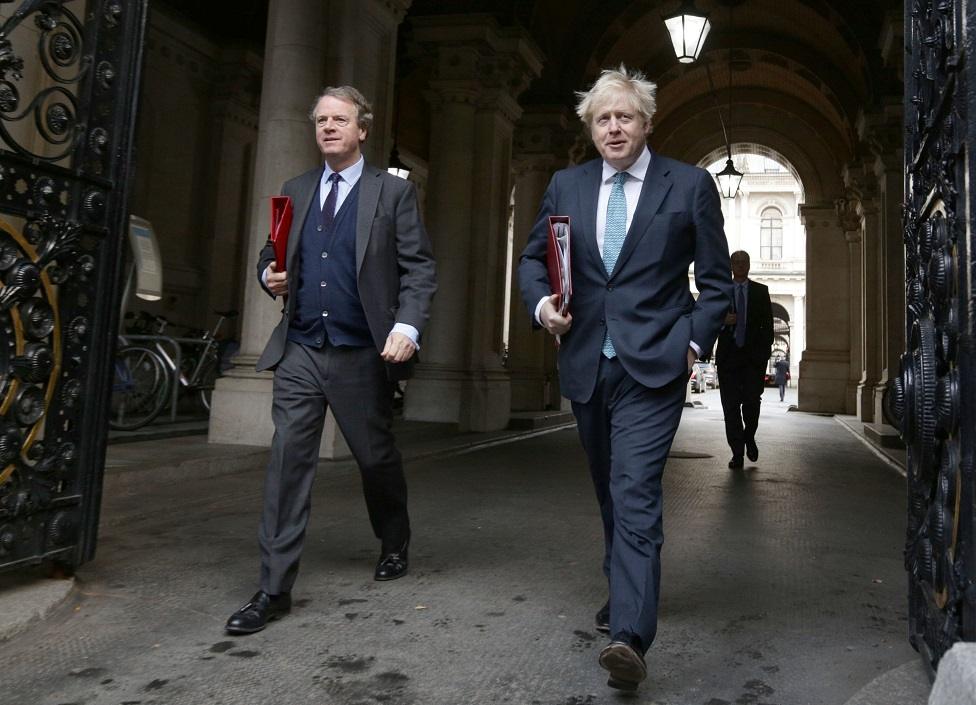
Scottish Secretary Alister Jack and PM Boris Johnson oppose another independence referendum
Meanwhile the UK government said politicians should be "working in partnership" to defeat the coronavirus.
"The government is supporting the devolved administrations in their vaccination programmes, with the British Armed Forces helping to establish 80 new Covid-19 vaccine centres in Scotland," a spokesperson added.
"The question of Scottish independence was settled decisively in 2014, when Scotland voted to remain part of the UK.
"Now more than ever, we should be pulling together to strengthen our United Kingdom, instead of trying to separate it".
- Published21 January 2021
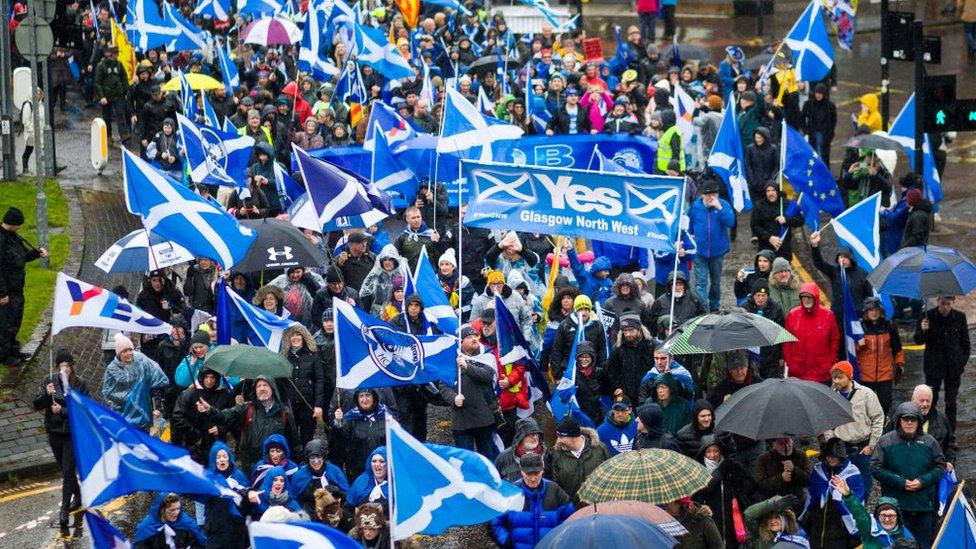
- Published1 September 2020
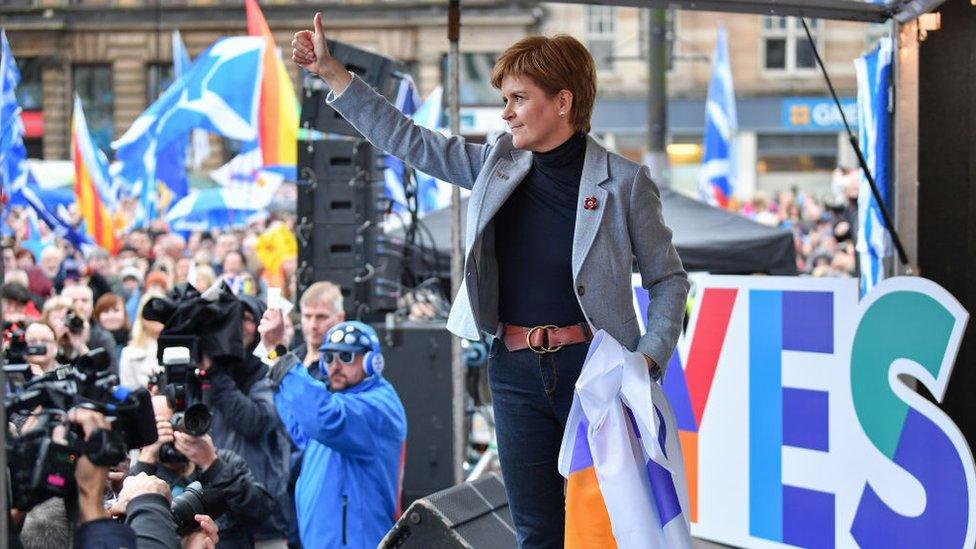
- Published19 December 2019
